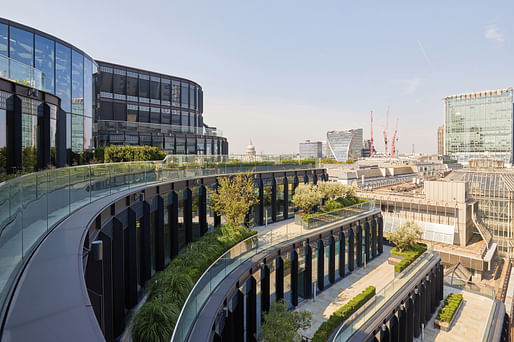

The debate surrounding sustainability and the Stirling Prize is heating up again in the lead-up to RIBA’s October 13th announcement of the coveted annual award.
Just eight weeks after the Institute's new president Muyiwa Oki was swept into office on a platform of change, UK-based critic Kunle Barker took to the Architects’ Journal to answer some of the organization’s more vocal critics, including the group Architects’ Climate Action Network (or ACAN), who have derided the so-called “greenwashing” presented in certain shortlisted projects and, they say, promoted tacitly by RIBA’s decision to endorse them.
“ACAN is correct on all points. However, I’m not sure its criticism has been levelled at the right party,” he wrote, stating that “we have to remember that the Stirling Prize is ostensibly an architecture competition and not a sustainability one.”
“It is impractical and unrealistic to suddenly expect all buildings to meet net-zero targets, be that in terms of their operation, life cycles or embodied carbon,” he added somewhat controversially. “Expecting architects to design buildings that may have been conceived a decade ago to current sustainability standards requires more than great architecture; it requires architects to be Time Lords.”
Barker’s defense serves as a worthy counterpoint not only to the ACAN letter (which he again reiterated a general agreement with) but also a growing chorus of detractors best exemplified by Canadian academic Lloyd Alter, who, writing in Treehugger over the summer, said we “live in a world where we have to make do and mend rather than just knock things down, and the history behind 100 Liverpool and Orchard Park cannot be ignored.”
RIBA says the six projects included in this year’s shortlist are being judged for the first time based (somewhat) on sustainability metrics. It will be interesting therefore to see how critics' reactions to the announcement are taken in along with these concerns, ideally leading to broader changes in the awards program and ability of the organization to be an advocate for (and not just promoter of) so-called good architecture overall. The 2022 Stirling Prize can be a turning point. As Barker says finally:
“Instead of carbon-shaming the RIBA, they should work with them to set improved sustainability guidelines for future competitions. We must all do better regarding sustainability. We can still celebrate the incredible architecture and the significant strides forward that the industry is making now. We must do better tomorrow, but we can still celebrate today.”
No Comments
Block this user
Are you sure you want to block this user and hide all related comments throughout the site?
Archinect
This is your first comment on Archinect. Your comment will be visible once approved.